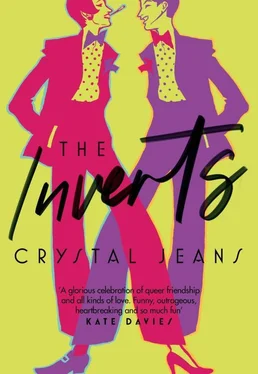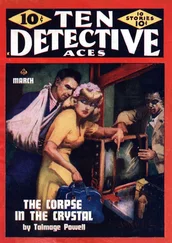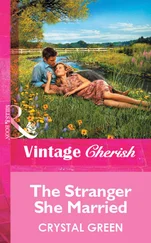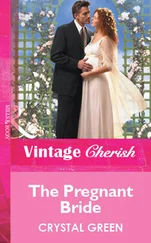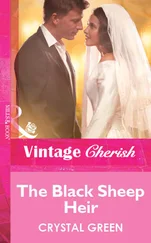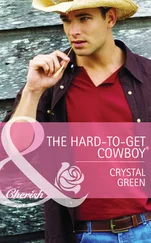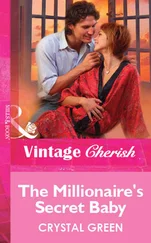Crystal Jeans - The Inverts
Здесь есть возможность читать онлайн «Crystal Jeans - The Inverts» весь текст электронной книги совершенно бесплатно (целиком полную версию без сокращений). В некоторых случаях можно слушать аудио, скачать через торрент в формате fb2 и присутствует краткое содержание. Город: London, Год выпуска: 2021, ISBN: 2021, Издательство: The Borough Press, Жанр: Историческая проза, на английском языке. Описание произведения, (предисловие) а так же отзывы посетителей доступны на портале библиотеки ЛибКат.
- Название:The Inverts
- Автор:
- Издательство:The Borough Press
- Жанр:
- Год:2021
- Город:London
- ISBN:978-0-00836-587-5
- Рейтинг книги:5 / 5. Голосов: 1
-
Избранное:Добавить в избранное
- Отзывы:
-
Ваша оценка:
- 100
- 1
- 2
- 3
- 4
- 5
The Inverts: краткое содержание, описание и аннотация
Предлагаем к чтению аннотацию, описание, краткое содержание или предисловие (зависит от того, что написал сам автор книги «The Inverts»). Если вы не нашли необходимую информацию о книге — напишите в комментариях, мы постараемся отыскать её.
‘Funny, filthy and phenomenally good’ Matt Cain
The Inverts — читать онлайн бесплатно полную книгу (весь текст) целиком
Ниже представлен текст книги, разбитый по страницам. Система сохранения места последней прочитанной страницы, позволяет с удобством читать онлайн бесплатно книгу «The Inverts», без необходимости каждый раз заново искать на чём Вы остановились. Поставьте закладку, и сможете в любой момент перейти на страницу, на которой закончили чтение.
Интервал:
Закладка:
They stopped under trees to cool off. They ate their pork pies and dried fruits and drank water made warm by the sun. They saw few people. Bettina kept thinking of the gun in her basket. It was wrapped in what looked like a piece of old tablecloth, the design a faded repetition of bluebells. She didn’t even know how to use the stupid thing.
The sun beat down, the air fuggy with heat, and their fit, strong legs pumped and pumped, and butterflies of every colour performed their neurotic sky-ballet.
Longworth hadn’t been requisitioned for the war effort, owing to its proximity both to a munitions factory – once Monty’s munitions factory – and to the shore. The factory was ten minutes’ walk from Longworth and half an hour from Wadley, Bettina’s lost childhood home. She remembered how Bart, when young, used to sit with dangling legs on the stone wall marking the end of his garden, watching the workers walk past, stooped and haggard from their thirteen-hour shifts. ‘I suppose I watch them because I’ve nothing better to do,’ he told Bettina, but, years later, he admitted the truth – he’d thought them beautiful. ‘Not in an artsy way. I wasn’t finding some grubby beauty in their monotonous, grinding existence like those awful writers Tuna admires. They were strong young men and I had my favourites.’
Now the factory was filled with women, just as it had been during the Great War, and according to Venetia, they were ‘very, very annoying’. Venetia’s letters had a comfortably predictable formula: one side of gossip, half a page lamenting the grandchildren’s displacement; linked to this, a paragraph about the Welsh (she distrusted the Welsh – Monty, of course, had been Welsh, and his family were ‘a money-grabbing, nouveau riche cluster of inbreds’); then, finally, a few lines bemoaning those sluts at the munitions factory. All my love, Mother. Her criticisms of these women were vague, prompting Bettina to ask, ‘But what have they actually done to offend you?’
‘Re: the factory sluts: they flick their cigarette butts over the wall. And they wear so much lipstick.’
‘You’ve never been bothered by women wearing lipstick before,’ Bettina wrote back.
‘Re: your comment about lipstick and my historical response to said lipstick: no, I have no quarrel with women wearing lipstick per se, but it’s the fact that these women are wearing all this lipstick while their husbands, fathers and brothers are getting themselves blown up in Europe. Seems jarringly inappropriate, frankly.’
By the time Longworth came into view, the shadows were lengthening and the sun sinking. Bettina and Ivy set their bikes against the fence and knocked on the front door. Ivy touched Bettina’s hand as they waited – one finger coming out and dabbing the knuckle.
‘I’m so thirsty,’ she whispered.
‘The sea air can’t help,’ said Bettina. ‘All that salt. Are you all right?’
‘Yes,’ said Ivy. ‘Only… it’s so grand.’
‘What is?’
‘The house!’
‘This house? You should’ve seen my old house. It was bigger.’
‘Will I have to wear fancy dresses to dinner? And use all sorts of different cutlery? Don’t laugh at me.’
‘No, you won’t. It’s wartime.’
‘Will there be maids wanting to dress me?’
‘No! We’re not lords and ladies.’ She gave the door another knock – harder this time. ‘Besides, all the maids are working in factories or doing what we’re doing.’ She stepped back, looking up at the windows. ‘I don’t think they’re in, you know – let’s go round the back.’
Ivy’s proud, high head moved slowly from side to side as she took in her surroundings: a small stone fountain covered in mildew and empty of water; a large laburnum tree, its dripping yellow blooms already starting to sprout the tiny pods that were supposedly poisonous if eaten (Bart, of course, had once eaten one).
‘There are many better off than me, you know,’ said Bettina. ‘Mine and Bart’s families are small fish compared to others. Newts, actually. We’re newts.’
‘I haven’t got sour grapes, if that’s what you think,’ said Ivy. ‘I had a pleasant upbringing and I didn’t want for anything. We had an indoor toilet quite early on. I don’t resent your money. I’m glad you had it.’ She nodded as if to reassure herself – I am glad, honestly I am.
Bettina put her hand on Ivy’s waist. ‘When the war’s over I’m going to feed you champagne. It’ll spill onto your naked body and I’ll lick it all up, every drop.’
A loud, harsh cough. Bettina spun around, snatching her hand away. Heinous Henry.
‘Mrs Dawes,’ he said, his face almost unreadable – almost , because no matter how well he affixed his mask, there were always the eyes peeping out, and they could only hide so much. He was wearing his usual black trousers but no jacket or tie – just a white shirt. She could see his vest underneath and the saggy flesh of his man-breasts. His nose seemed to have grown in the last few years, especially the nostrils, and where his hair had once been, there now grew only a few long grey wisps, which anyone possessing a mirror and half a shred of sense would’ve plucked out long ago. He looked very old now, but nowhere close to feeble or doddering, and his posture was immaculate. ‘You weren’t expected,’ he said. ‘Your mother and Mrs Dawes are out in the garden.’ He stepped to the side and signalled with his hand for them to pass him.
Lucille and Venetia were hanging out sheets on the line, pegs clipped onto their collars. Black socks and nylon stockings were draped over every croquet hoop on the lawn. The birdsong in Lucille’s aviary mingled with the notes of a Puccini aria playing from the conservatory’s gramophone. Venetia shielded her eyes with her hand, squinting against the glare of the sun.
‘Bettina?’ She was wearing a cream housedress with a tan leather belt. She looked thin. Lucille was also thinner, except for her backside, which was genetically designed, it seemed, to withstand the barest of winters. She had a red scarf tied up in her greying hair, the bunny ears flopping down over her wrinkled forehead, and she was wearing blue dungarees – clearly she’d wanted to dress the part for the manual work. Her ears and wrists were still crowded with jewellery.
‘What are you doing hanging up sheets?’ said Bettina.
‘The cleaning woman went and had a stroke last week.’
‘What a bother for you.’
‘Well, it is actually.’ Venetia gave her a kiss on each cheek.
‘This is Ivy Turner. She works with me on the farm and we’re both on leave – I hope you don’t mind if she stays, I’ve been telling her all about the lovely beaches and she’s very excited. Aren’t you, Ivy?’
Venetia gave Ivy a shrewd up-and-down appraisal before putting out her hand for shaking. Ivy looked strong and serene, controlled – it was a look Bettina recognised from their very first meeting at Hathaway Farm. She knew now, of course, that it hid terrible nerves.
Lucille was standing back a little, lighting a cigarette, also appraising Ivy. She had that look in her eye, like she knew what was what. Of course she did.
‘You’re looking well,’ Venetia said to Bettina.
‘The outdoors agrees with me.’
‘Rationing too, by the looks of things.’ She poked Bettina’s belly. ‘You were getting tubby.’
‘As were you.’
‘Well, we’ve no staff, dear, except good old Henry, and he can’t very well do everything himself. I’ve had to sweep the floors this week! Can you imagine?’ She chuckled, looking over at Lucille. ‘Wasn’t I a sight?’
Lucille nodded, smiling.
‘And her, beating the rug,’ said Venetia.
Читать дальшеИнтервал:
Закладка:
Похожие книги на «The Inverts»
Представляем Вашему вниманию похожие книги на «The Inverts» списком для выбора. Мы отобрали схожую по названию и смыслу литературу в надежде предоставить читателям больше вариантов отыскать новые, интересные, ещё непрочитанные произведения.
Обсуждение, отзывы о книге «The Inverts» и просто собственные мнения читателей. Оставьте ваши комментарии, напишите, что Вы думаете о произведении, его смысле или главных героях. Укажите что конкретно понравилось, а что нет, и почему Вы так считаете.
